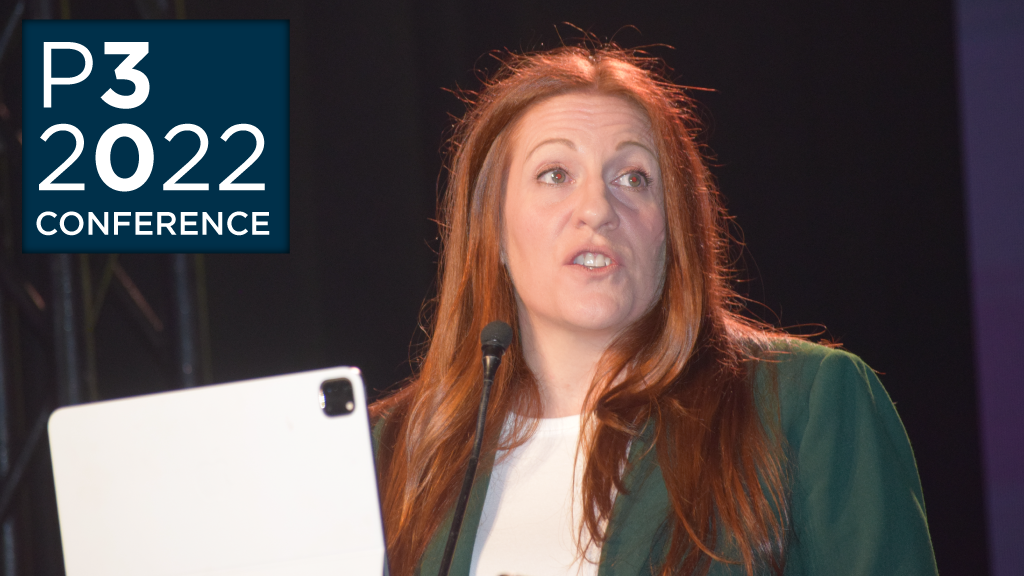Public-private partnerships in Canada are now 30 years old and have reached a crossroads, delegates attending the recent Canadian Council for Public-Private Partnerships (CCPPP) conference heard.
P3s have an undeniable legacy of successes, CCPPP president and CEO Lisa Mitchell said in her Nov. 21 conference kickoff address, but in recent years they have also been beset with debates, abandoned projects, continuing criticism from the likes of Ontario’s auditor general and questions about untested new procurement models.
What’s needed, Mitchell said, is for P3s to get back to the fundamentals that have made them successful but at the same time they must adapt and become ready for an unpredictable future.
Her address was billed as How the Canadian P3 Sector Can Triumph in a Time of Upheaval.
“I believe not only in the viability but in the superiority of the P3 model,” Mitchell told the Toronto audience attending the first in-person CCPPP conference since 2019. “And yeah, it’s been knocked around a bit, but it hasn’t been knocked down or knocked out.”
Speaking before Mitchell, outgoing CCPPP chair Mark Bain said with so much change and challenges facing both the broader construction sector and the P3 niche, it’s critical for the council to evolve.
“The last few years have been fairly chaotic at the council, but we found our feet are ready for the next wave of P3 activity.”
The P3 sector has to evaluate what’s working and what’s not working, said Bain.
“Sometimes (we have) fierce family conversations that are needed to break through the impasses.”
Among the stresses facing P3s are a host of economic factors, Mitchell said, including inflation, supply chain issues, commodity prices and labour market challenges, and societal factors such as the COVID pandemic and its “seemingly infinite ripple effects.”
“I’ve certainly been around long enough to know that in this line of work, progress is very rarely linear,” said Mitchell, who replaced long-time CCPPP CEO Mark Romoff last year.
Mitchell said some projects have been delayed or cancelled and others are being reevaluated in the context of affordability pressures. Key market participants have also left the sector.
“A decade ago, we passed through a period when all signs pointed to ‘yes,’” she said, noting 2015 as a high watermark with 60 P3 projects.
“Well, the golfers out there will know what I mean when I say we’re playing into a bit of a headwind. We’ve got to work harder and work different and we need to be patient. We need to remember that the direction of the wind and its intensity are always subject to change. Headwinds become tailwinds.”
Even as the sector was being buffeted in recent times, it was exhibiting ingenuity in solving problems. Innovative solutions ensured the progress of the Tlicho highway in the Northwest Territories, and despite a variety of hurdles the Hamilton biosolids project reached substantial completion.
Three decades after the CCPPP was founded, “This made-in-Canada model has achieved global recognition,” Mitchell said. “It’s been embraced by other nations. It has made a
difference in what gets built. We haven’t just claimed that the P3 model works, we’ve proved it time and time again.”
As she looks at putting her stamp on the agency, Mitchell said, the CCPPP will evolve.
“Our priorities in the council are very much being shaped by the realities of the market,” she said.
The annual conference will remain an essential meeting place for global P3 participants, where best practices and ideas will be shared. But the CCPPP has decided it will facilitate a year-round dialogue, not just at events but through other strategies as well, said Mitchell.
The agency will put a priority on policy and communications so that decision-makers at all levels understand the benefits of the P3 model “and the talents that the private sector brings to the job,” said Mitchell.
There will be more research and roundtables “so that you get information and knowledge that you can put to work in your own offices and on your own jobsites.”
Other outreach efforts, such as the new Candid Conversations platform, also represent an opportunity for the council to take a leadership role in bringing the industry together on mutual areas of concern, Mitchell said.
She summed up: “There will always be times when moving forward is harder and the path is less clear. But those of you here today, you have shown that challenges can be overcome; changes can be made; solutions can be found.”
Follow the author on Twitter @DonWall_DCN.







Recent Comments
comments for this post are closed